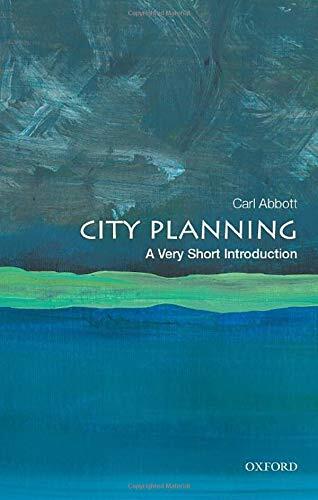
City Planning: A Very Short Introduction
by
Carl Abbott
No ratings yet
Thriller & Suspense
Action & Adventure
Science & Technology
+1
more
Format
Paperback
Pages
168
Language
English
Published
Oct 22, 2020
Publisher
Oxford University Press
Edition
Illustrated
ISBN-10
019094434X
ISBN-13
9780190944346
Description
In a rapidly urbanizing world, the intricacies of city planning become ever more essential to navigating contemporary challenges. This introduction grapples with the fundamental aspects of urban development, exploring not just the architectural and spatial considerations, but also the socio-economic dynamics that shape city life. Carl Abbott delves into historical perspectives, reflecting on how past planning decisions influence present-day urban environments.
Abbott emphasizes the pivotal role of policy and community engagement in the planning process. By analyzing the relationship between urban spaces and the people who inhabit them, he unpacks the various factors that contribute to a city's functionality and livability. The discussions reveal the complexities behind zoning laws, transportation systems, and public spaces, highlighting the need for inclusive approaches to urban design.
With a focus on sustainability and resilience, the work highlights the pressing demand for cities to adapt to climate change and social shifts. Abbott's insights challenge readers to rethink their understanding of what makes successful urban areas, proposing that effective city planning is a collaborative effort aimed at enhancing the quality of life for all residents.
Abbott emphasizes the pivotal role of policy and community engagement in the planning process. By analyzing the relationship between urban spaces and the people who inhabit them, he unpacks the various factors that contribute to a city's functionality and livability. The discussions reveal the complexities behind zoning laws, transportation systems, and public spaces, highlighting the need for inclusive approaches to urban design.
With a focus on sustainability and resilience, the work highlights the pressing demand for cities to adapt to climate change and social shifts. Abbott's insights challenge readers to rethink their understanding of what makes successful urban areas, proposing that effective city planning is a collaborative effort aimed at enhancing the quality of life for all residents.
Reviews
Reading Log
No reading logs found
Start tracking your reading progress to see logs here
Add Your First Reading LogNotes
Transaction Log
No transaction logs found
Start tracking your book transactions to see logs here
Add Your First Transaction Log


















